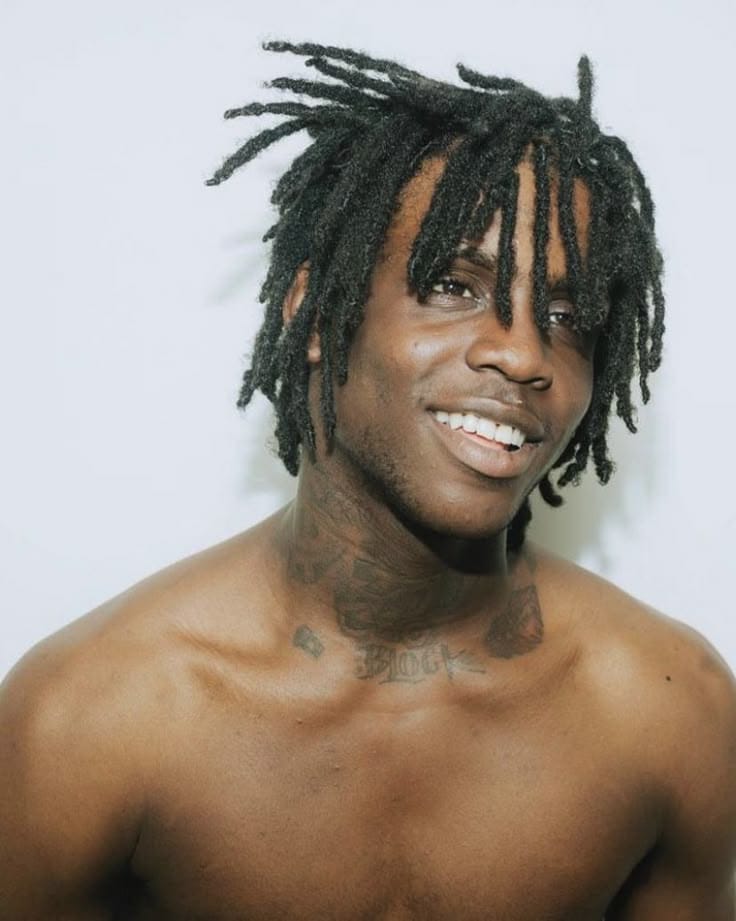Chief Keef's Latest Album, Dirty Nacho's is, violent but Alive: The Sound of Chicago’s Streets Crystallized into a Primal Scream that Echoes far beyond its Origin.
https://open.spotify.com/track/2UwALqx6yOsXTFt7zRxnts?si=4598ea7048994cf3

Keef’s production fingerprints are all over this project, the self-made beats and brooding atmospheres signaling total creative control. That autonomy is a declaration: this is his story, told in frequencies only he can channel. The album breathes with a life of its own—messy, alive, urgent. Lyrically, he balances bravado with vulnerability, weaving tales of loyalty and loss. “Loyalty cost me tears I still wipe off in mirrors,” he raps on one track, a line that reverberates with me on a personal level. It’s not just street poetry; it’s an intimate confession delivered over war drums and cathedral keys.
The occasional guest spots feel less like distractions and more like glyphs in a sigil—elements carefully chosen to enhance the ritual without diluting the power. The interlude with Michael Blackson breaks the tension with humor, a necessary breath in the middle of deep meditation. Keef’s voice, slowed and slurred, feels more intentional now—a sonic anchor that grounds the album even as it explores new emotional terrain. His breathing, the subtle intake and release, becomes part of the rhythm, a heartbeat beneath the verses that I find myself synchronizing with.
He still incorporates operatic and classical samples, a deliberate nod to transcendence. This is not just drill music; it’s temple music for a new era, an oratorio of survival and sovereignty echoing through the corridors of time. The album’s sequencing refuses polish, instead favoring the chaotic flow of a living organism. It stutters, it bleeds, it breathes, inviting listeners into a raw, unfiltered experience. The low bass notes that close the album linger long after the final track ends, leaving an afterimage vibrating in the silence.

This is the Sosa who fled the South Side to build anew in LA. You hear the geography in his sonic textures—the desert’s echo, the canyon’s expanse, all filtered through a lens of streetwise grit and hard-won wisdom. When the album ends, it doesn’t close a chapter; it leaves the door ajar for future incantations. I turn it back on again and again because Sosa’s music isn’t content; it’s ceremony. A living, breathing conjuring of survival, struggle, and sovereignty.
Chief Keef’s Almighty So 2 is less a sequel and more a reckoning. More than a decade after Almighty So cemented Keef as drill’s melodic prophet, he returns not with nostalgia, but with fire-forged authority. The adolescent fog is gone. What remains is a man who has lived long enough to reflect, invent, and declare: “I’m still the one you cloned.” The mixtape-turned-statement album doesn’t just revive a legacy—it sharpens it. Clocking in at just under an hour, AS2 is relentlessly dark, expansive, and thunderous. The production is cinematic and maximalist, often sounding like it was designed to score a boss battle in a futuristic noir shooter. That’s because Keef produced or co-produced nearly the entire project himself. From Gregorian chants to spine-chilling orchestras, his beats feel sacred and savage, like he’s building a temple with 808s and lighting it with gunpowder.
The intro track, “Jesus,” sets the tone: epic, spiritual, a little unhinged. Using a sample that sounds like it was lifted from a Vatican exorcism, Keef raps about demons, money, and his grandmother’s prayers with the kind of confidence that makes you believe in reincarnation. “I talk to God, but the devil on my line,” he mutters, riding the tension between invincibility and vulnerability, glory and paranoia. Keef has always thrived in the haze of contrast—joy and grief, opulence and isolation—and Almighty So 2 is his most textured meditation on duality yet. On “Drifting Away,” he flips auto-tune into an instrument of mourning. It’s not singing; it’s wailing. A fugue state in 808s. Elsewhere, “Prince Charming” fuses fragile piano loops with chest-puffed bars. His delivery is breathless but never out of control, like a man sprinting through his past with a mirror in each hand.
The guests don’t dilute the vision—they reinforce it. Quavo’s appearance on “Never Fly Here” is surprisingly pensive, while Tierra Whack’s dexterity on “Banded Up” adds a necessary counterbalance to Keef’s vocal grit. Even G Herbo’s gravel comes off like a spiritual cousin rather than a cameo. These aren’t features—they’re co-anchors on Keef’s myth-building voyage. What’s most striking is how Almighty So 2 isn’t trying to appeal to anyone—it’s documenting a frequency Keef already lives on. There are no radio plays here. No viral baits. No concessions. It’s designed like a cult classic from the start: confident in its world, uncaring if you can’t decode it. This is Sosa operating from inside the fortress he built, occasionally cracking open the gates to remind us he’s still the architect.
And yet, it’s not opaque. The beats speak. The samples scream. Even at its most impenetrable, there’s an emotional clarity to the project. “1,2,3” interpolates Bobby Womack in a way that sounds almost like generational memory leaking into a trap anthem. On “Titanic,” a haunted string section swells behind lines about drowning in fame and isolation. It's as if Keef is carving out a spiritual language between each snare.
It’s tempting to frame this as a comeback, but that misses the point. Chief Keef never left—he just kept building. While the mainstream caught up to drill’s aesthetics, Keef turned his focus inward, becoming a prolific producer, label boss, and low-key myth. Almighty So 2 isn’t about reclaiming the throne. It’s a reminder that he built the palace, forged the crown, and now owns the whole damn kingdom.
Even his flaws feel intentional. Some verses bleed together, transitions vanish, tracks end mid-thought. But that’s the chaos he’s always embraced. The dirt on the diamonds is part of the shine. Keef’s brilliance is that he knows the rules of precision but chooses noise, chooses excess, chooses honesty over polish. And in that choice, he stays one step ahead of everyone trying to imitate him. In the end, Almighty So 2 feels less like a mixtape and more like a scripture. It’s mythic. It’s grimy. It’s sacred. It pulses with contradictions and legacy, thumping like the heartbeat of a god who never wanted to be worshipped—but couldn’t stop it from happening. At 28, Chief Keef proves he’s not just a pioneer of sound—he’s a master of world-building. And this world? It’s still his.
